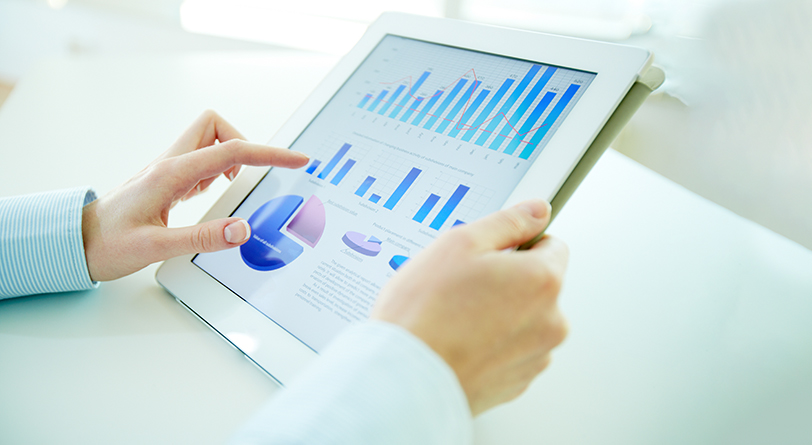Noah Godfrey and Dominic Santschi met while working in India to set up plastic waste recovery projects funded by plastic credits, a voluntary financing mechanism under which companies claim credit for offsetting their use of virgin plastic, similar to the way companies purchase carbon credits to offset greenhouse gas emissions.
But Godfrey and Santschi eventually turned their attention to a new challenge.
“We wanted to see companies enact changes within their operations and supply chains to reduce plastic waste,” Godfrey says. “And we wanted to give companies a tool to enhance the transparency of their goals and guide them on a path to reduce their plastic footprint.”
To translate words into action, Godfrey and Santschi joined with Anjali Mahadevia to launch Ampliphi in 2021. Purchased this past year by Pennsylvania-based sustainability consulting firm ClimeCo, the startup aims to help companies understand plastics in their operations and supply chain and identify areas to reduce their use.
At the center of Ampliphi’s work is a scorecard that companies can use to show consumers where they stand and where they are going, says Godfrey, who is now a senior associate at ClimeCo. “We help map, essentially, what we think is good corporate plastic waste management.”
Walmart Set Tone
Scorecards have a relatively long track record in the world of plastics and packaging. In 2006, for example, retail giant Walmart introduced a packaging scorecard designed to gauge the environmental impact of its vendors’ packages.
Over the past two decades, regulatory and consumer pressures have prompted more companies to take a closer look at plastics usage and adopt various measures of their progress toward sustainability and recyclability.
Ampliphi aims to stand out by providing an independent, audited, data-driven look at what companies are doing to improve on an annual basis, Godfrey says. He also cited the commitment to transparency made by companies using the scorecard.
“You see it on their websites, so you can understand what’s happening behind the scenes that you might not have seen before,” Godfrey says. “And, also, it’s fully voluntary, so you know that the intention is really to improve.”
Ampliphi composes its plastic scorecard by gathering various data points that show where a company is on its waste reduction journey. The data comes from a company’s supply chain, the kinds of polymers and plastics it uses, and the recycling methods in the place where the company’s products are sold.
The end result is what Godfrey describes as a story that companies can tell their customers about their commitment to change. It also serves as a baseline against which companies can measure future progress.
Subsequent improvements might include greater use of recycled content, adoption of reusable packaging, or better end-of-life instructions for customers, Godfrey says.
Getting Started
Companies occasionally balk at releasing their scores, and they can choose not to move forward with disclosing them, Godfrey says. But, he adds, “everyone has to start somewhere. And even though the score might not be something you want to publicly announce, I think setting a standard for yourself is important, and publicly doing that shows you are ready to commit to improving.”
Case Study
Ampliphi designed the scorecard with small to mid-size consumer packaged goods companies in mind, particularly in the food, beverage, and beauty sectors, Godfrey says. Among the firm’s largest customers is Arbonne International, a California-based cosmetics company and certified B Corporation.
Using the scorecard, Arbonne says it has taken steps ranging from measurements of plastic waste in its value chain, to setting goals for plastic waste reduction, to raising internal awareness about the potential of the circular economy. The company’s to-do list includes minimizing material use in product and packaging design and enhancing the recyclability of its products and packaging.
Arbonne says it reduced 86,000 pounds of plastic from its product portfolio in 2022. And in line with the U.S. Plastic Pact, the company is aiming for a 50% overall reduction in plastic and a switch to 100% recycled and bio-based content by 2025.
As part of ClimeCo, Ampliphi hopes to expand its consulting services and wrap its products into a broader mix of sustainability and environmental, social, and governance-related services, Godfrey says. “We know plastic reduction is important, and now we are excited to offer tools for our clients to also reduce their carbon emissions.”
Ultimately, he says, the main question isn’t necessarily about how to reduce plastic but how to use it more intelligently. The correlation between waste and emissions is inherently connected and should be a top priority for companies who are striving to have a positive impact.
More Pressure
Godfrey also expects companies to face increasing pressure—whether from investors, consumers, or regulators—to disclose their plastic usage and waste.
Countries are beginning to impose plastic taxes and require greater tracking under extended producer responsibility laws, he says. “It’s really up to companies to act now to get ahead of these things and prepare their supply chains because the data needs are challenging.”
Joel Berg is a freelance editor and writer based in York, Pennsylvania.
